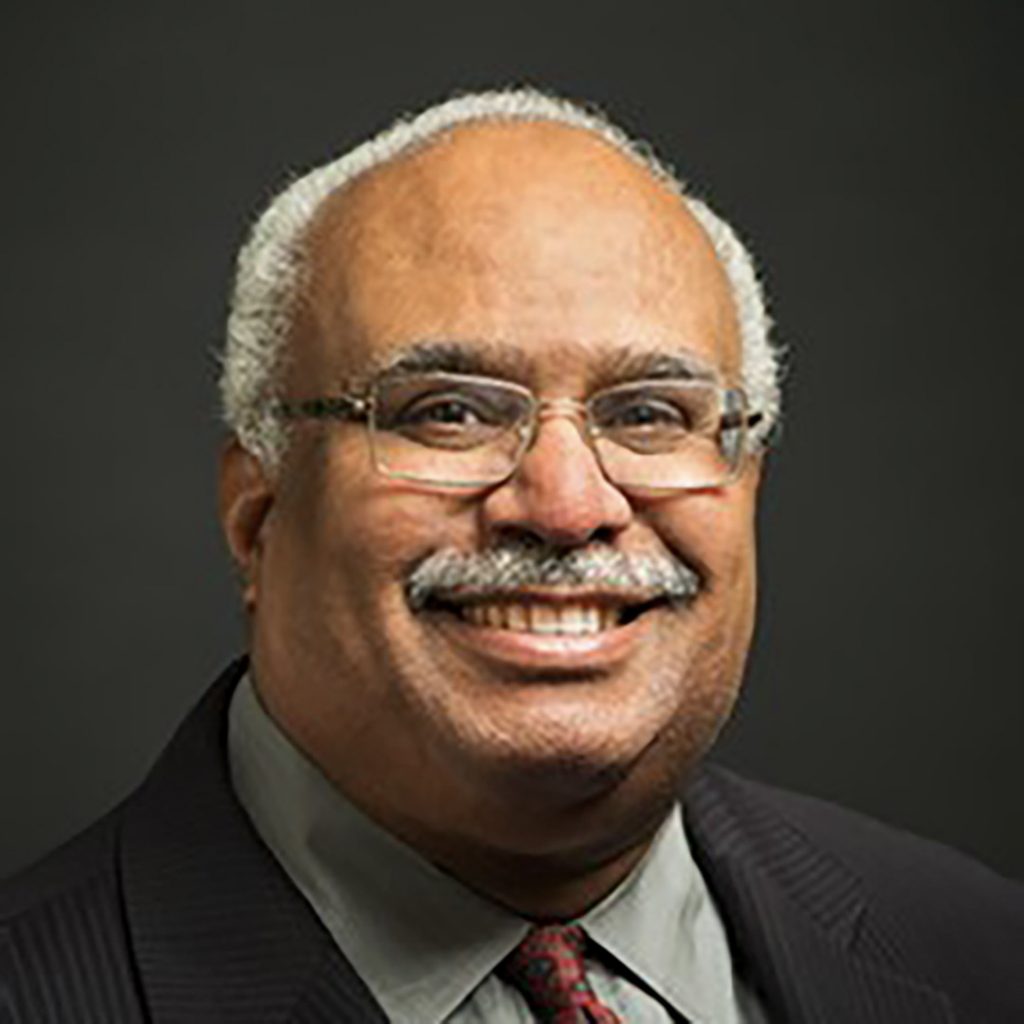
Deborah Trefts
Staff writer
During fall 2011, Georges C. Benjamin, MD, was on sabbatical at Hunter College of the City University of New York.
Benjamin, who currently serves as executive director of the American Public Health Association, had been appointed the 2011 Joan H. Tisch Distinguished Fellow in Public Policy at the Roosevelt House Public Policy Institute, situated in “the old Roosevelt twin town houses built by FDR’s mother,” Benjamin said. President Franklin Delano Roosevelt gave them to Hunter College in 1943. Decades later, they were converted into the Institute, which opened in 2010 in honor of FDR’s legacy, and that of his wife Eleanor.
“I got to live on the top floor of FDR’s house for six months,” Benjamin said. “On the third floor, there’s the library where they conceived the social safety net. At 3 a.m., when I was there trying to figure out what to do with my life, I thought about a book on health reform.”
Co-authored with a medical historian, two public health professionals, and an editorial cartoonist, The Quest for Health Reform: A Satirical History was the result of his brainstorm. Through political cartoons, this book chronologically recounts U.S. health system reform efforts from the 1870s through the enactment of the Affordable Care Act in 2010.
With his talk, “A New Social Compact to Achieve Optimal Health for All,” Benjamin will present the final lecture in the Chautauqua Women’s Club’s 2023 Contemporary Issues Forum speaker series at 3 p.m. Saturday in the Hall of Philosophy.
The creative collaboration conceived of during his Tisch fellowship sparked other public health reform efforts, including a second co-authored book, Public Health Under Seige: Improving Policy in Turbulent Times. It examines the effect of U.S. public policy on human health and recommends actions that would improve health and lengthen life expectancy.
“My talk is about what FDR had done, and rethinking the social safety net,” he said. “And it’s for us to get to social solidarity. For me, that’s through the lens of how to improve people’s health. I’m advocating for … re-envisioning a lot of the discussion in the U.S. The next stage of health reform may be about this, as the status quo becomes unacceptable.”
Public health policy was not Benjamin’s initial field of expertise. Growing up in Chicago, science captivated him from the get-go, and he earned his Bachelor of Science degree at the Illinois Institute of Technology.
“I had no interest in being a doctor as a kid,” he said. “I wanted to be a scientist. I grew up with something of an understanding of DNA and RNA and genetics. I knew I wanted to be a gene splicer. I was working in a lab … doing sickle cell research and I didn’t know enough. In those days, you didn’t have Dr. Google to help you. I was always looking up stuff.”
A friend suggested medical school and Benjamin looked into it. With the assistance of an Army scholarship, he earned his MD at the University of Illinois at Chicago College of Medicine. That meant his internships and residency were under the auspices of the U.S. Army.
“I did a classic internal medicine residency,” Benjamin said. “You can bet that when they needed a volunteer for extra shifts, I did.”
The day the Army opened up its first emergency department – at Brooke Army Base Hospital in San Antonio, the Army’s flagship medical institution – he was there.
“Emergency medicine was a very new specialty,” he said. “… My faculty adviser, as a resident, was a consultant to the Surgeon General of the Army. This was luck!”
Following “training in the field,” Benjamin said he was assigned a few years later to be on the faculty of the Madigan Army Medical Center in Tacoma, Washington. There, he served as chief of its large Acute Illness Clinic, practiced internal medicine as an attending physician, and “became a card-carrying emergency physician.”
Reassigned after a few years, Benjamin moved east to Washington, D.C., to serve for four years as chief of emergency medicine at the Walter Reed Army Medical Center, which doesn’t see a lot of trauma, so his expertise in internal medicine served him well. He also taught on the medical faculties of Georgetown University and George Washington University.
Benjamin left the Army after nine years of service to chair the Department of Community Health and Ambulatory Care at the District of Columbia General Hospital. This meant that he had advanced “from section chief to service chief to hospital chief.”
“I was there for about two and a half years and my phone rings,” Benjamin said. “It’s the mayor: ‘Have I got a job for you.’ His health commissioner had just resigned. This was Marion Barry. I was there a week or two before he got busted. … Now I’m head of a public health system, a $120- to $140-million program.
Benjamin said he was acting commissioner of public health for the District of Columbia for a year and 10 months before he got “the political shove.” Barry had not run for re-election, and the new mayor, Sharon Pratt Kelly, had someone else in mind for his job.
“I practiced emergency medicine, and emergency medicine and injury policy,” he said. “… I (had also) had an interest in bad things that people could do to each other, and bad bugs.” He learned enough about terrorism, nuclear weapons and bio-weapons to ultimately be selected to serve on a National Academy of Science committee.
Then Kelly called and asked him to serve as interim director of the Emergency Ambulance Bureau of the District of Columbia Fire Department, one of the nation’s busiest ambulance services. When Kelly lost the next election to Barry, Benjamin continued in this position for another five months.
The state of Maryland’s new health secretary needed a new deputy in 1995, and Benjamin got the job. He was appointed deputy secretary for public health services, which he said was a $1 billion operation covering everything except operations and Medicaid, and there was a deputy secretary for each.
“Four years later, my boss leaves and I find myself as secretary of the Maryland Department of Health and Mental Hygiene,” Benjamin said. Under his watch, the state’s Medicaid program grew and improved.
“I went from a $1 billion agency to a $4- to 5.5-billion department,” he said. “There was a drought, a hurricane through the southern part of Maryland, a Pfisteria outbreak and red tide.”
When Anthrax-laced letters were sent to U.S. senators and media figures shortly after the Sept. 11 terrorist attacks, Benjamin was still Maryland’s top health official. “The first case was a Maryland resident infected in D.C.,” he said.
After Maryland inaugurated a new governor in 2002, Benjamin became the executive director of the American Public Health Association.
He has been “leading the Association’s push to make America the healthiest nation in one generation” ever since, knowing firsthand “what happens when preventive care is not available and when the healthy choice is not the easy choice.”
“Eighty percent of what makes (people) healthy occurs outside the doctor’s office, influenced by social factors that both enable and hinder (their) ability to be healthy,” Benjamin said, adding that although society knows what those factors are, it has underinvested in them. “Building a society that values investments in these social determinants of health is an essential next step in achieving optimal health for all in America.”




